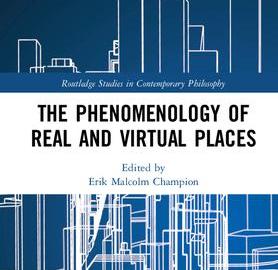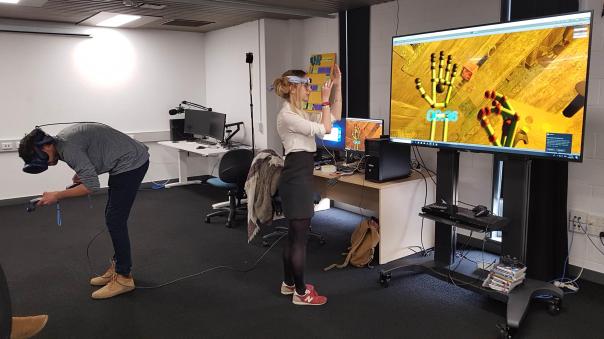More for my own use, here are two papers accepted for CAA2019 in Krakow Poland, 23-27 April, 2019.
Author Erik M Champion (Mafi?)
Title Mixable reality, Collaboration, and Evaluation (S36: User Experience Design in Archaeology and Cultural Heritage)
If we are to move past one hit AR wonders like Pokémon Go, scalable yet engaging content, stable tools, appropriate evaluation research, long-term and robust infrastructure, are essential. Formats like WebVR and Web XR show promise for sharing content across desktop and head-mounted displays (without having to download plugins), but there is also a non-technological constraint: our preconceptions about virtual reality. For example, in a 2018 Conversation article “Why virtual reality cannot match the real thing” by Professor of Philosophy Janna Thompson) she argued that virtual reality (and virtual heritage in particular) attempts to provide accurate and equivalent realistic interactive simulations of the existing real world.
VR is not only a possible mirror to the current world. As Sir David Attenborough noted about the Natural History Museum’s “Hold the World” VR application, it provides a richer understanding of process, people can move and view virtual objects that are otherwise fragile, expensive or remote. And it allows people to share their mashups of reality, mixable reality. Collaborative learning can compel us to work in groups to see the bigger picture… your actions or decisions can be augmented and incorporated into the experience. However, there are few studies on collaborative learning in mixed reality archaeology and heritage. This presentation will discuss two projects, (one using two HoloLens HMDs, one a game where two people with different devices must share and control one character,) the theories adopted, and the range of possibilities for evaluating user experience in this collaborative mixed reality.
This is related to part of an article on VR for tourism that was submitted to the online Conversation website, this abstract will be further modified and updated.
Authors: Erik M Champion, Hafizur Rahaman
Title: 3D Models: Unwanted, Unknown, Unloved (Session S37: 3D Publishing and Sustainability: Taking Steps Forward)
Given the importance of three-dimensional space and artefacts to archaeology and to heritage studies, one might therefore assume that publications in the area of virtual heritage are heavily reliant on providing scholarly argument based on 3D models.
To corroborate this hypothesis, we reviewed virtual heritage proceedings of five major digital heritage conferences one could expect to be focused on projects incorporating 3D models. A total number of 264 articles across 14 proceedings were studied, and the results will be tabulated and presented.
The lack of accessible 3D models, usable projects, or ways in which the 3D model could be used and critiqued in a scholarly argument is of great concern to us. We suggest that long-term usage and preservation of virtual heritage models are worrying and persistent issues, and their scholastic impact is severely compromised. We suggest there are least three critical issues: we lack accessible, durable and complete infrastructure, which is essential for storage and preservation; we still don’t have a shared understanding of how to develop, integrate and demonstrate the research value of 3D heritage models; we also lack robust, long-term publication systems that can integrate and maintain both the 3D models and their relevance and functionality in terms of both community engagement and scholarship. We recommend seven practical steps for ensuring that the scholarship going into the development of 3D virtual heritage models, and arising from 3D virtual heritage models, can be fully implemented.







